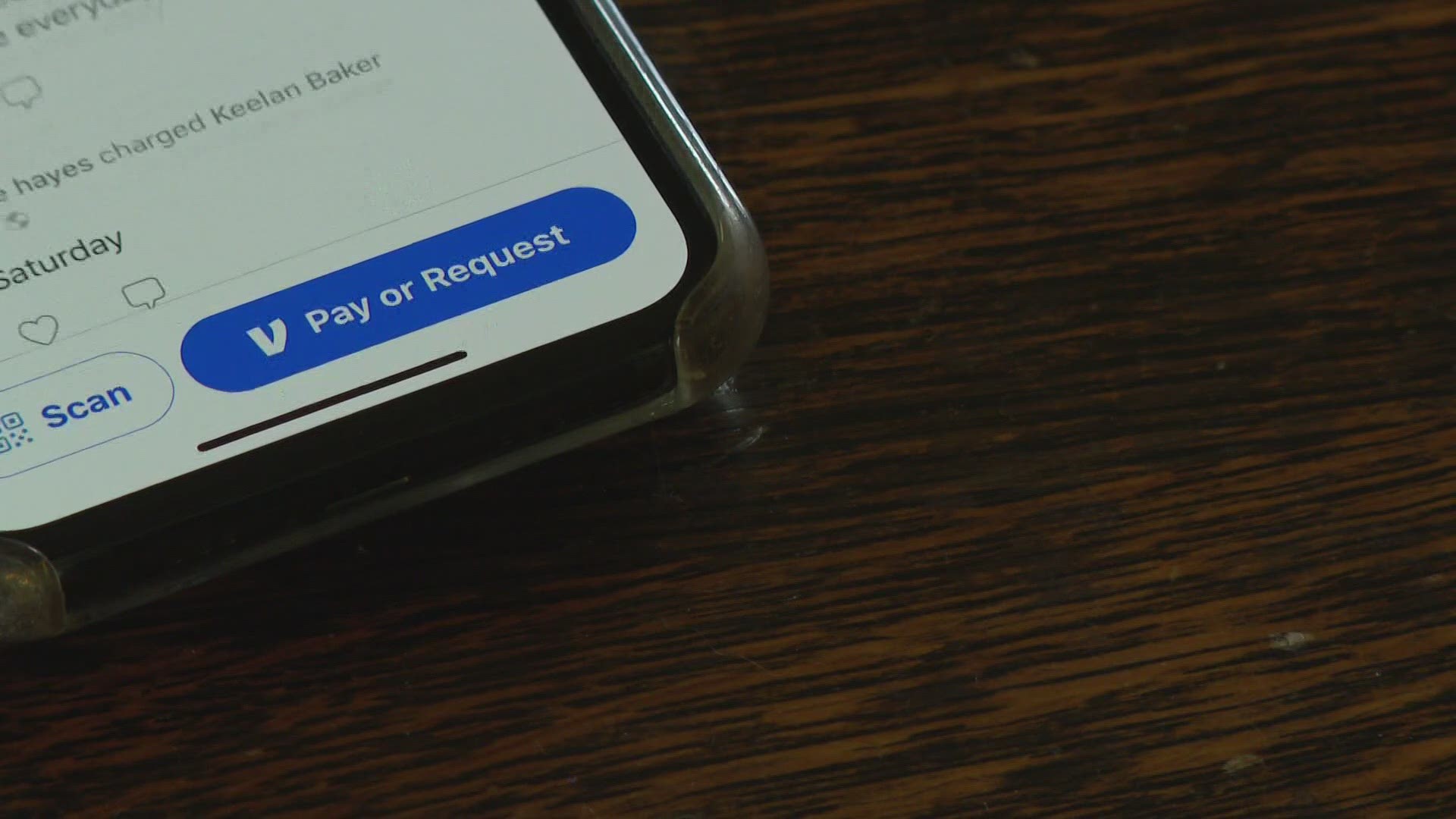GRAND RAPIDS, Mich. — Scammers are finding more ways to trick people out of their money.
In the past year, the Better Business Bureau (BBB) has seen an increase in scams related to apps like Venmo or Cash App.
The latest one involves a random, seemingly accidental payment to you. The person who sent the money will then send a message saying the payment was a mistake and ask you send it back. Don't do that.
"What you don't realize is you'll send that money back, and that money was never there," said Troy Baker, director of the BBB Western Michigan Educational Foundation. "It was usually done with a stolen credit card or some other payment that gets rescinded."
When you send the money back, it comes out of your own bank account, and the money the scammer sent via Venmo is rescinded from your Venmo account. It means you are out a lot of money.
And there is no way to get that money back.
"One of the key things to using Venmo and apps like these is the terms and conditions," said Baker, "These apps are intended to pay people you know and trust, between friends and family members. You’re not supposed to send this to people you don’t know. It's not for purchases with people you don’t know, and there’s no protection if it goes wrong."
Instead, if you receive a payment that appears to be a mistake, wait a few days. Do not send the money back and do not deposit it into your own account. Baker said some banks may come back to you to get the money, because it was originally from a stolen credit card. Reach out to Venmo, if you can, and try to determine if a real person is behind the "accidentally" sent money.
Click here to file a complaint with the Indiana Attorney General's Office if you suspect you've been a victim of this scam.
Often, scammers target an older population. Baker said this one is different, mainly targeting younger people who are familiar with this technology and use it often.
"You think 'someone made an expensive mistake' and you want to help them out," said Baker, "But more and more, these types of offers are scams, and you need to look out for you first."

